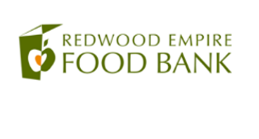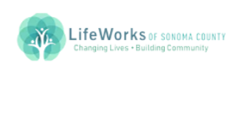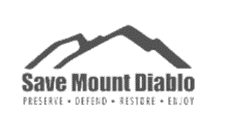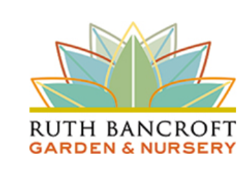With the holidays approaching, we thank our clients, friends and partners for their support.
While the financial markets and economy are out your control, in the following year-end checklist, we offer 14 actions for things you can control, ranging from the practical to the sublime, to potential increase your wealth and well-being.
1. Review your health care choices to make sure they meet your evolving needs.
If you’ve retired, Medicare open enrollment ends on December 7th. Make sure your prescription drug coverage meets your needs. Not only do plans change the coverage they provide but the lineup of prescription drugs you rely on may have changed since last year. Health Insurance Consulting Advocacy Program HICAP is a good source to help you make an informed choice.
If you’re still working, enrolling in a High Deductible Health Plan, if appropriate, could enable you to contribute to your very own Health Savings Account. An HSA is a tax-advantaged account that allows you to set aside funds to pay medical expenses. We like how Optum Bank has partnered with Charles Schwab to offer investment choices for HSA accounts.
2. Maximize your retirement contributions; your future self will be happy you did!
If you’re employed, try to maximize your 401(k) contributions. You have until year-end to contribute up to $20,500. If you’re 50 or older you can add another $6,500 “catch up” contribution, bringing your total contribution in 2022 to $27,000. If your employer offers matching contributions, don’t pass it up … that’s free money!
If you’re self-employed, you may be able to contribute $6,000 to your IRA depending on your annual earnings. If you’re 50 or older you can add on a $1,000 “catch up” contribution, bringing your total contribution in 2022 to $7,000. You have until the tax deadline (April 17, 2023) to contribute to an IRA for the 2022 tax year.
Self-employed people may also be able to increase retirement contributions by opening a Simplified Employee Pension SEP, Solo 401(k) or Savings Incentive Match Plan for Employees, aka SIMPLE. Your Elevation Wealth Partners can help you explore these options.
3. Review, reflect and rebalance your portfolio to maintain your desired risk profile.
The end of the year is a great time to think about rebalancing your portfolio to maintain your desired asset mix and risk profile. By selling assets that have done well and buying investments that have underperformed you’re following time tested rule to “buy low and sell high”.
A word of caution: selling investments could trigger taxes so be sure you’re clear on the consequence of your actions to avoid a surprise tax bill.
4. Take your Required Minimum Distributions to avoid the 50% penalty.
RMDs must be withdrawn from your IRA or 401(k) (and other “qualified”) accounts each year so that Uncle Sam can tax you on those distributions. When you turn 72, you’ll need to take your first RMD by April 1st of the following year. For subsequent years, you need to withdraw the RMD amount by December 31st.
Required minimum distributions are determined by dividing the retirement account’s prior year value by the applicable distribution period life expectancy. We work with Charles Schwab to make sure clients are taking the appropriate amount of RMDs for the money we manage.
We’re often asked, “Do I have to spend the money from my RMD?” The answer is “No.” If you don’t need the money, just transfer it into your taxable brokerage account and reinvest it. However, if you choose not to take your RMD, you’ll be penalized by the IRS for 50% of the amount not withdrawn.
Good news! You don’t need to worry about taking RMDs from your Roth account unless you inherited it.
5. Contribute to your favorite charity and get a 2022 tax deduction.
If you’re like most taxpayers, you’re taking the higher standard deduction, and therefore you’re not getting any tax benefit from your charitable contributions. There are, however, some smart ideas to make your generosity go further.
Consider “bunching” your charitable contributions to help push you over the Standard Deduction threshold. By making your donations in alternating years, you could itemize in the years you contribute and take the standard deduction in the years that you don’t. This could lower your taxes overall.
In addition, you can gift all or a part of your RMD through a Qualified Charitable Distribution (QCD) for up to $100,000 every year. You won’t get a tax deduction for this donation, but you won’t have to pay income taxes on it either. This allows you to transfer some of your IRA money directly to charity without paying taxes on the distribution.
You can donate appreciated assets to charity, deduct the full market value, and avoid paying tax on the gain. We’re happy to talk to you about these and other tax-advantaged charitable giving options.
Elevation Wealth Partners is proud to donate our time, talent and treasure to the betterment of the communities in which we live and work. Some of the causes we support are:
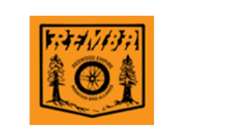
6. Consider iBonds to earn a respectable interest rate with relatively minimal risk.
You can buy up to $10,000 iBonds from TreasuryDirect every calendar year. Currently, iBonds pay an interest rate of 6.89%. Try doing that at your Bank or Credit Union! The US Treasury changes the rate for iBonds twice a year. An added benefit of iBonds is that interest payments are not taxable at the state and local level.
A word of caution: make sure your iBond purchases align with your cash flow needs since you’re required to hold new iBonds for a full year and you’ll forfeit three months’ interest if you sell iBonds before you’ve held them for five years.
The TreasuryDirect website can be finicky, but we think it’s worth the effort.
7. Take advantage of the gathering of your tribe to initiate important conversations.
There are a few subjects that families would just assume not talk about; money is one of them. This holiday season you might get the golden opportunity to initiate the conversation. Talk with your parents to see what financial resources they have and ask them if they need your help as they age. You could be the one that lifts the cloud of mystery by starting the conversation with your children about your financial situation.
We’re a resource to your adult children that may not be able to afford professional advice. As a client of Elevation Wealth Partners, we can help your child make good investment choices in their 401(k), discuss employee benefits, stock options, and debt choices.
8. Take steps now to reduce your 2022 taxes.
Selling underperforming investments in taxable accounts could save you money on taxes. In investment speak, we call this “Tax-Loss Harvesting” – which is selling a perfectly good investment that happens to be currently worth less than what you originally paid for it. In doing so, you generate a loss which you can use to offset taxes on current or future gains. At the same time, steer clear of the IRS’s Wash-Sale rule and purchase a similar (but not identical) investment, so that you are not out of the market. During down market years like 2022, many of our clients were able to take advantage of Tax Loss Harvesting.
9. Schedule important meetings you’ve been putting off.
It’s a good idea to meet with your insurance provider periodically to review premiums, deductibles / sub-limits, and coverage for all your policies. As your life (and the environment) changes, so will your insurance needs. End-of-year is a good time to review your insurance policies and reconsider Umbrella insurance if you don’t have that coverage.
Get help from a qualified Attorney to make sure your Estate documents are up to date. We’re happy to provide a list of estate planning attorneys in your area.
CPAs and Enrolled Agents are in scarce supply these days so you might want to see if you can schedule some time to meet in the new year. If you would like some suggestions of CPAs and EAs we like, contact Barry, Ryan or Kevin; we’d be happy to share our short list with you.
10. Review your spending plans before you go shopping.
Create family spending plans, budgets, and automatic savings plans. The holidays can be a good time to set some financial savings goals for the coming year, review progress from the past year, and plan for any large expenses in the coming year. While inflation may have peaked in 2022, we expect it to remain relatively high through at least 2023. Some people find it helpful to deposit a portion of their paycheck directly into their savings/brokerage accounts to avoid the temptation of having easy access to the money in their checking accounts.
11. Tune-up your Emergency Fund.
Our typical suggestion is to maintain funds to cover six to nine months of living expenses in the form of liquid assets such as a money market or conservative bond funds. Volatility of income and job security are also factors to consider when creating your emergency fund.
With interest rates rising in 2022, it’s a good idea to make sure your bank is paying a competitive rate. There are several online banks that are currently paying between 2-3% in savings and money market accounts.
12. Monitor your Online and Cyber Security.
Change your passwords at least every six months and use two-factor authentication when possible. Be aware of suspicious phone calls, emails, and texts asking you to send money or disclose personal information.
If a service representative calls you, hang up and call back using a known phone number. Never share sensitive information or conduct business via email, as accounts are often compromised. Beware of phishing and malicious links. Urgent-sounding, legitimate-looking emails are intended to tempt you to accidentally disclose personal information or install malware. Don’t open links or attachments from unknown sources. Enter the web address in your browser.
Check your email and account statements regularly for suspicious activity. Don’t enter confidential information in public areas. Assume someone is always watching. For more tips you can contact FDIC Consumer Assistance & Information at https://fdic.gov/resources/consumers/index.html.
13. Make 529 college savings contributions.
A 529 plan is a tax-advantaged savings plan designed to help pay for education. Originally limited to postsecondary education costs, it was expanded to cover K-12 education in 2017 and apprenticeship programs in 2019.
There are several good plans out there. The one that we recommend most often is the Utah Educational Savings Plan at my529.org.
14. Make sure you’re not drawing down your investment assets too quickly.
Suitable withdrawal rates vary depending on your age, investment mix, and a whole host of other factors. The 4% rule, that’s been around since the 1990s, posits that if you withdraw 4% of your account the first year of retirement and adjust that amount each year for inflation, your assets could last for about 30 years. Recently, some have suggested that a more sustainable rate might be 3% to 3.5%.1
We’re immensely grateful for the trust you place in us to help guide your financial future so that you can live the life you hope for. For many of our clients, we’ve already checked many of these boxes. We’re here to help; click on these links to schedule time with Barry, Kevin or Ryan.
1 Should Retirees Still Follow the 4% Rule?
The information provided here is for general informational purposes only and should not be considered investment advice. Elevation Wealth Partners does not provide tax advice. Clients should consult a professional tax advisor for their tax advice needs.



